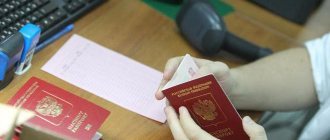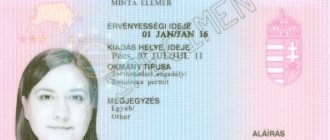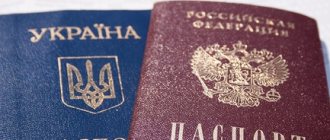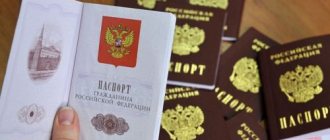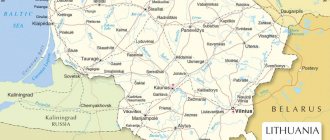Benefits of Hungarian citizenship
Hungary, providing the right to obtain citizenship for Russians in 2020, opens up the following advantages for them:
- visa-free visits to more than 160 countries;
- residence in the EU countries without any restrictions;
- the right to open your own business in any EU state;
- the ability to withdraw and store capital in EU currency legally;
- the right to vote and be elected.
The Hungarian authorities guarantee their citizens economic stability and social security.
European Union Citizenship
Since Hungary is part of the European Union, Hungarian citizens are also citizens of the European Union under European Union Law and thus enjoy the right of free movement and have the right to vote in elections for the European Parliament.[6] When located in a non-EU country where there is no Hungarian embassy, Hungarian citizens have the right to obtain consular protection from the embassy of any other EU country located in that country.[7][8] Hungarian citizens can live and work in any EU country as a result of the right of free movement and residence granted in Article 21 of the EU Treaty.[9]
Basic ways to become a citizen
When faced with the question of how to obtain Hungarian citizenship, you should pay attention to the following methods of acquiring it:
- by birth;
- through naturalization;
- for investments;
- through family reunification.
Citizenship by birth is assigned if the immigrant has both parents or one of them has a Hungarian passport. Where a person was born does not matter. The right to acquire Hungarian citizenship is granted to those who were born within or outside its territory.
Through naturalization
A candidate for citizenship through naturalization must meet the following requirements:
- permanent residence in Hungary legally for at least 8 years;
- legal income to support oneself;
- no problems with legislation;
- knowledge of the Hungarian language.
A migrant planning to become a Hungarian citizen must know the basic provisions of its Constitution, respect and follow local laws. His behavior should not pose any danger to the country.
If the person wishing to obtain Hungarian citizenship is over 60 years of age or has limited legal capacity, knowledge of the national language is not necessary. People who graduated from universities where teaching was conducted in Hungarian do not need to confirm their knowledge.
Residence requirements in Hungary are reduced if the person is stateless or is permanently in the country before their 18th birthday. It is only 5 years, as is the case for people born here. For those who are parents of Hungarian minors, refugees or spouses of Hungarian citizens for at least 3 years, this threshold is reduced to 36 months.
Investor citizenship
Businessmen have the right to receive status for investment. To do this, they must make a contribution to government bonds in the amount of €300,000 and for a period of 5 years. Within six months, entrepreneurs also receive a permanent residence permit in Hungary for investment for five years. After only 3 years, they are allowed to apply for citizenship.
Family reunion

Read also: Immigration to Hungary Do I need a visa to Hungary?
This option is available to those whose spouses or parents have Hungarian citizenship. Applicants are required to have valid residence permits. The following requirements apply to those awaiting the arrival of family:
- official confirmation of consent to family reunification by submitting an appropriate application;
- having your own or rented living space with 12 square meters for each resident;
- proof of income that allows you to support relatives.
If any requirements cannot be met, a multiple entry visa is another option for family reunification.
What options are there for obtaining a residence permit?

One of the ways to obtain an entry visa and further permission to reside in the country is an employment contract with a local company.
Additionally, you will need to obtain permission from the Employment Center, as well as provide a rental agreement. An initial start-up capital is also required, which will cover your needs until you receive your first salary or advance payment.
What should its amount be? What other papers are required to register residence for work? Contact our specialists and they will tell you in detail all the points and requirements. However, then you will have to wait for a month.
This is how long local specialists will try to find a person to take your place. If they fail, then you will be granted a work and residence permit in Hungary.
Can the purchase of real estate be the basis for acquiring Hungarian citizenship or a passport? How many years do you need to live in the country? Our lawyer is ready to provide you with qualified assistance. Leave your contacts on the site, and he will contact you at any convenient time.
To study in the state, you must obtain a long-term visa and take mandatory language courses.
Telephone consultation (click and call)
Other Possible Methods
Citizenship can be obtained through repatriation. It represents the return to their homeland of people with Hungarian roots. In this case, it is necessary to prove ethnicity by providing birth and marriage certificates or archival extracts. Lost documents can be restored using metrics or records from the registry office.
Some migrants are entertained by the idea of buying citizenship. Such actions are illegal. If a foreigner falsifies documents in an attempt to use them to obtain a Hungarian passport, such fraud is fraught with severe punishment.
Citizenship by Investment
Some states have a practice such as obtaining citizenship by a foreign person in exchange for an investment or purchase of real estate for a specific price. As a rule, in this case, the procedure for obtaining citizenship is noticeably accelerated and simplified. The question arises of how to obtain Hungarian citizenship through investment. As for Hungary, there is no such basis at the official level. A bill with such a proposal is in parliament, but at the moment it has not received approval. There are other nuances associated with investments.
Among the advantages related to obtaining citizenship with the accompanying purchase of real estate or investment is freedom of movement within the EU for 1 year. That is, from the moment of purchase or depositing funds into the account, the citizen receives the right to stay in Hungary or travel within the EU for a year without obstacles. In addition, the period for obtaining a residence permit is reduced - from 3 months it is reduced to 3 weeks, and the likelihood of refusal to obtain a residence permit is reduced to zero.
List of required documents
Among the requirements for applicants for registration of Hungarian citizenship is the one-time submission of copies and originals of the following documents:
- foreign and civil passport;
- birth and marriage certificates;
- papers confirming successful passing of the state language test;
- certificates of availability of living space in Hungary;
- resident card;
- certificates and diplomas of education;
- papers confirming employment and income level.
All documents must be translated into Hungarian, and copies must be notarized. The papers must also be accompanied by a statement, photographs of the appropriate sample, and a short autobiography.
Hungarian Citizenship Law, action and reaction
Hungarian Prime Minister Viktor Orban, in the first speech of his third term in office, spoke about the need for autonomy and dual citizenship for Hungarians living in neighboring countries, in particular in the Transcarpathian region.
Obtaining Hungarian citizenship is regulated by the Citizenship Law, which was adopted back in 1993.
The Hungarian citizenship law is based on the principles of jus sanguinis. Hungarian citizenship is acquired mainly by virtue of one of the parents being of Hungarian origin, or by naturalization (a child whose at least one parent is a Hungarian citizen, regardless of the child's country of birth).
The fact of birth in Hungary does not automatically provide citizenship. Exceptions include children born to unknown or stateless parents.
Hungarian citizenship by naturalization
Hungarian citizenship can be obtained by naturalization if the following conditions are met: - Eight years of continuous residence in Hungary, - A stable livelihood, - No criminal record, - Passing the Constitutional Fundamentals Test.
Persons over 65 years of age or older, as well as persons with disabilities and holders of Hungarian diplomas may be exempt from taking the Hungarian Constitution knowledge test.
Hungary's motives are simple, because the territory of Transcarpathian Ukraine was Austro-Hungarian land in the pre-war years. The Hungarian government approved a migration program with the aim of increasing the size of the Hungarian population at the expense of the descendants of Hungarians who lived in Ukraine before 1920 and from 1939 to 1945.
On June 4, 1920, in the Grand Trianon Palace of Versailles, the Trianon Peace Treaty was signed between the Entente countries - the winners of the First World War and Hungary, which fought on the defeated side.
The treaty fixed the legal situation as a result of which Hungary lost 2/3 of its territory with a population of up to 3 million ethnic Hungarians. For the country it was a time of national tragedy. The Treaty of Trianon was in 1938-41. revised, which allowed Hungary to regain part of the lands lost in 1920: the north of Romania, the south of Slovakia and Transcarpathia.
The Second World War again made its adjustments to the territories, but with the help of the Soviet Union, taking away part of the Hungarian lands, in particular the north of Romania, the south of Slovakia and Transcarpathia.
Hungary currently exists within the borders defined by the Treaty of Trianon, and beyond them - in Romania, Slovakia, Austria, Vojvodina and Transcarpathia there remain significant Hungarian national minorities. In particular, more than 150,000 people live in the Transcarpathian region of Ukraine - descendants of former subjects of the Hungarian crown, whose ancestors, without moving from their place, without personal initiative and special formalities, were forced to frequently change their citizenship.
The Soviet Union, having arrived here, the first thing it had to formally do was issue a Decree of the Presidium of the Supreme Soviet of the USSR on depriving the citizens of Transcarpathia of Hungarian, Czechoslovak, Romanian, and Polish citizenship. But no one did this; everyone was immediately accepted as citizens of the USSR.
1991 brought another additional citizenship for residents of Transcarpathia. The passport of a citizen of the USSR was simply stamped “Ukraine”; otherwise, the document was recognized as legal.
According to the Ukrainian census data in 2001, 155 thousand people registered as Hungarians in Transcarpathia. But according to expert estimates, in reality there are much more representatives of the Hungarian national minority, both then and now, in the region.
Many changed their place of residence as a result of natural migration. Almost ten years ago, many were afraid to register as Hungarians, not knowing what it might entail for them; many for whom Hungarian was the language of communication of their parents were registered as Ukrainians at the registry office.
On May 31, 2010, the Hungarian Parliament adopted a draft Law (authored by Zsolt Semjon and Laszlo Kever), according to which June 4, the anniversary of the Treaty of Trianon, is proclaimed as “Day of National Solidarity.” 302 deputies voted for the draft Law.
In the adopted law, the authors called the Treaty of Versailles, signed 90 years ago, “the greatest tragedy of the Hungarian people” and expressed the need to negotiate on all conflict positions arising today from the Treaty of Trianon (Versailles).
The legal norm of the document declares that “all members and all communities of Hungarians who were plunged into bondage by neighboring states are part of a single integral Hungarian people, whose solidarity knows no boundaries. At the same time, this solidarity of theirs is an element of their personal and social identification.”
Within the framework of international law, I consider the grounds for granting the right of citizenship to Hungarians to be quite justified. The initiators also note that in the Hungarian legal field, a decision on a simplified procedure for granting citizenship already took place in 1886 in the case of “Changa” - at that time these were ethnic groups scattered in the territories of modern Moldova and Romania, outside the territory of the former Hungary, which spoke Hungarian.
On May 26, 2010, the Hungarian Parliament approved amendments to the Citizenship Law. The changes came into force on January 1, 2011. The new provision of the law regulates the “abolition of the requirement of compulsory residence and income in Hungary, if knowledge of the Hungarian language is tested and somehow established.”
Naturalization of citizens occurs from the following conditions. — The conditions for ordinary naturalization contain more limited requirements for public control. Accordingly, a foreign citizen of non-Hungarian origin can be naturalized upon application if he does not pose a threat to public order and national security of the Republic of Hungary. This wording replaced the previous wording: “threat to the interests of the state” in the previous version of the law.
— Preferential naturalization will be offered to foreign citizens who had a Hungarian citizen ancestor or whose origins from Hungary are probable, and if they have proven knowledge of the Hungarian language.
It should be noted here that for 90 years (1920 – 2011) in the long-suffering land of Transcarpathia, “the official languages were Hungarian, Czech, Russian, Ukrainian. Every resident of this territory is forced to study and teach children the spoken language of the “current government” over the years.
The applicant must also fulfill two other requirements. The first is to have a police clearance certificate from your country of residence, and also not to have any legal proceedings in Hungary. Secondly, his naturalization should not pose a threat to public order and national security of the Republic of Hungary.
Consequences of the amendment to the Law - unlike ordinary naturalization, residence in Hungary and proof of sources of income in Hungary will not be required. There will also be no requirement to pass a test on knowledge of the Constitution. Moreover, proof of Hungarian language proficiency will not be required from persons with incapacitated or disabled persons. Such applicants (minors or with disabilities) may submit their application for naturalization without accompanying it with text or a certificate confirming their knowledge of the Hungarian language.
Knowledge of Hungarian language
The regulation of the fact of knowledge of the Hungarian language is spelled out vaguely in the document, and in no way regulates the creation of conditions for the development and improvement of the Hungarian language among citizens - descendants of the Hungarian crown. For some reason, 5 years after the adoption of the amendment to the Citizenship Law, the Hungarian Government adopted a punitive and repressive trend against “new Hungarian citizens” - deprivation of citizenship for lack of “good knowledge of the language.” Of course, naturalization applicants speak a limited, everyday level of the Hungarian language, which is sufficient for communication in a family of ethnic Hungarians living abroad. Indeed, due to political circumstances, they had to study Czech, Russian, Ukrainian, Romanian. However, the Hungarian authorities did nothing to adapt them to the new environment. An instructive example is the state of Israel, where every repatriate is given the opportunity to learn or improve the language for free, and to understand the legislative field of the state. This does not exist in Hungary, just as there are no state programs for the development of language and culture. Moreover, when communicating in government agencies or customs, they hear about their “inferiority”, and often speak in various local dialects, which are not spelled out in textbooks on the Hungarian language. For example, a border guard or customs officer allows you to use “slang” in a conversation.
However, the descendants of former subjects of the Hungarian Crown wish to obtain their legal right of naturalization.
The Secretary of Hungary, responsible for national policy in the Hungarian government, Arpad Janos Potap, said that as of mid-2015, 94 thousand residents of the Transcarpathian region received Hungarian citizenship through a simplified procedure.
Do the state of Hungary, which is experiencing a serious demographic decline, need these people? Judging by the latest actions, the police, where the “witch hunt” began - the search for “not well-spoken Hungarians” - are not needed. The press and police report hundreds of criminal cases of deprivation of citizenship for falsification of documents and lack of good language skills. Falsification is bad and it should be noted that this problem is internal and, as a rule, created by government officials in Hungary, but a significant part of honest ethnic Hungarians prefer to leave the country, where at any moment you can be called to the police station, accused of not knowing the language or falsification, and deprived of citizenship - the reasons for deprivation of citizenship are not reported; they leave for the Czech Republic and Germany. But initially, the Hungarian Government approved a migration program with the aim of increasing the size of the Hungarian population, as mentioned above.
Revocation of Hungarian citizenship
Let's look at the provisions of the Law on Loss of Hungarian Citizenship.
Voluntary renunciation of Hungarian citizenship is permitted. Hungarian citizens who have another citizenship (two citizenships) and reside outside Hungarian territory may renounce their Hungarian citizenship. Persons wishing to renounce citizenship must submit a written application to the President of the Republic. The Embassy can provide information and assistance, but does not have the right to act for such a person. It is impossible to lose Hungarian citizenship unintentionally.
The only exception applies to falsified naturalization applications. For falsification of documents - yes, lack of good knowledge of the language - no.
There is a way out: to create centers for studying native speech at the state level. Paid. The state will earn more money.
Renaturalization
A person who has lost Hungarian citizenship may apply and may be naturalized under the same conditions as persons of Hungarian origin. Proof of Hungarian language proficiency must be provided. The applicant must have a police clearance certificate from the country of residence and must not have any legal proceedings in Hungary. His naturalization should not pose a threat to public order and national security of Hungary, reports the website MyHungary.Net
Experts call the reasons for the negative dynamics of the birth rate logical, since the population is aging and able-bodied citizens are leaving to work abroad.
Difficulty obtaining
The difficulty of acquiring citizenship is that you need to know Hungarian law and language. It’s not easy to master them on your own, so you’ll have to sign up for special courses. In the case of repatriation, it is difficult for an immigrant to prove that he has Hungarian roots. Finding the necessary documents will take a lot of time.
There is a certain risk in obtaining citizenship through investment. An entrepreneur can become a victim of fraud when he wants to invest in government bonds.
Naturalization procedure
As we understand, the naturalization process is quite lengthy, but it is more accessible than the previous ones, so it’s worth the effort. So, how can a Russian citizen obtain Hungarian citizenship?
- Submitting an application for permission to stay in the Republic. On the territory of the Russian Federation, such a petition can be submitted to the embassy or the Consulate General (St. Petersburg, Yekaterinburg). Such an application is considered for 30 days. If we are talking about studying or engaging in scientific activities, the application is considered within 15 days.
- If the application is approved, a visa (single entry) is already issued in Hungary. Its cost is 60 euros (4500 rubles), duration of stay is 1 month.
- Trip to Hungary. A temporary residence permit must be issued within a month. It costs 30 euros (2,300 rubles) and is valid for 1 year. To obtain such a permit, you need to contact the Immigration Department, it is located in Budapest.
- 11 months after the start of residence of a foreign citizen, it is necessary to submit documents to extend the residence permit for another 1 year. The maximum deadline for submitting an application is 15 days before the end of the permit, otherwise you will have to apply for everything again. A year later, the permit is renewed again.
- When 3 years have passed, you need to submit an application for permanent residence. As a general rule, you must live with him in Hungary for at least 5 years.
- We submit an application for citizenship to the Immigration Department. The processing time is 3-6 months.
- If the application is approved, the person must take the oath of office to Hungary (within a year). Otherwise, the application will be cancelled. After this, you can already obtain a Hungarian passport. The document is issued by the Immigration Directorate at your place of residence.
Citizenship confirmation period
The time frame for issuing a passport from another state differs significantly from those provided for when issuing a national ID. Having submitted documents for citizenship, no later than 4 weeks later the migrant receives a certificate confirming the acceptance of the papers by the authorized bodies. The issue of acquiring resident status is considered within a period of 6 to 12 months. If certain conditions are met, this period is reduced to 60 days. If the decision is positive, the person takes the oath at the appointed time.
Receiving a passport
In almost 90% of cases, the authorities make a positive decision on applications for citizenship. This suggests that they have become more loyal to immigrants. The Hungarian passport is issued 2 weeks after taking the oath. To do this, you need to come to the Ministry of Internal Affairs.
Alternative option for moving to Hungary
Obtaining Hungarian citizenship is a complex and costly process, requiring permanent residence on the territory of the state in question. In addition, there is a high probability that, having spent time and financial resources, the interested person will not get what he wants. Like most European countries, Hungary willingly accepts only those immigrants who direct their own investments in the development of the country.
However, there is an alternative way to move to Hungary for permanent residence, available to many citizens of the Russian Federation - registration of Romanian citizenship. Romania, which joined the European Union on January 1, 2007, provides its citizens with a full range of European civil rights, including a visa-free regime and the opportunity to live, study or work in any EU country.
Russians who:
- Are in an official and not fictitious marriage with citizens of Romania;
- Have lived in Romania on the basis of a long-term visa or residence permit for more than 5 years;
- They belong to the Romanian ethnic group by origin;
- Regardless of nationality, they are descendants of persons who lived before 1940 in the territory now belonging to: Modern Romania;
- Moldova;
- Ukraine (Northern Bukovina);
- Hungary (provinces bordering Transylvania).
To obtain Romanian citizenship, documents from the following list are required:
- Documents identifying the applicant for the status of a citizen of Romania (birth certificate, internal and foreign passport);
- Statement on the decision to accept Romanian citizenship (required to be submitted in Romanian, the involvement of a translator is allowed);
- Certificates from the Ministry of Internal Affairs of Russia and Romania confirming the fact that the applicant has no outstanding convictions;
- 4 color passport photographs (photo size - 3.5 by 4.5, without frame, background - white, face close-up);
- Certificate of marriage or divorce (if available);
- Documentation for the minor child of the applicant (if available);
- A written decision made by the applicant regarding Russian citizenship (refusal or retention of dual citizenship);
- Documentation proving the applicant's right to Romanian citizenship: Certificate of marriage with a Romanian citizen;
- Documents of the applicant's mother or father confirming the Romanian origin of the person concerned;
- A residence permit or permanent visa valid at the time of application to the consulate;
- Documents of the applicant's ancestors who lived in the territory that belonged to Romania before 1941.
You can apply for Romanian citizenship both in Romania and on the territory of the Russian Federation. If the applicant is in Romania, he must contact the Migration Department of the Ministry of Justice in Iasi or Bucharest. You can apply for Romanian citizenship in Russia by contacting the embassy or one of the consulates general of this country.
Possibility of dual citizenship
The legislation of Hungary and Russia provides for dual citizenship. However, this term is used somewhat differently. Not “double”, but “second”. When applying for it, the immigrant is not obliged to refuse the first one.
When receiving a second citizenship, you must notify the Main Department of Migration of the Ministry of Internal Affairs about this no later than 2 months before it is assigned. Otherwise, punishment is applied in the form of a fine equal to annual income or correctional labor for a period of 400 hours.
Read also: Life in Hungary Work in Hungary
Features of the procedure
There are some exceptions to the general rules of naturalization that allow a Russian citizen to obtain a Hungarian passport in a simplified manner.
The period of residence in the republic is reduced from 8 to 5 years for:
- Foreigners who received a residence permit as a minor.
- In the event that the person is stateless.
- The citizen was born in Hungary to foreign parents.
The period of residence in the republic is reduced to 3 years for persons:
- Are or have been married to a Hungarian citizen. This also includes widows and widowers whose spouses were Hungarians.
- Are the parents of a Hungarian citizen.
- Received refugee status.
According to the law, the following are exempt from taking exams:
- Pensioners aged 65 or more.
- Foreign persons. educated at a Hungarian university or who have completed certified courses in the Hungarian language.
- Persons with chronic mental disorders or persons with disabilities.
Having examined the details, let's move directly to the question of how a Russian can obtain Hungarian citizenship?
